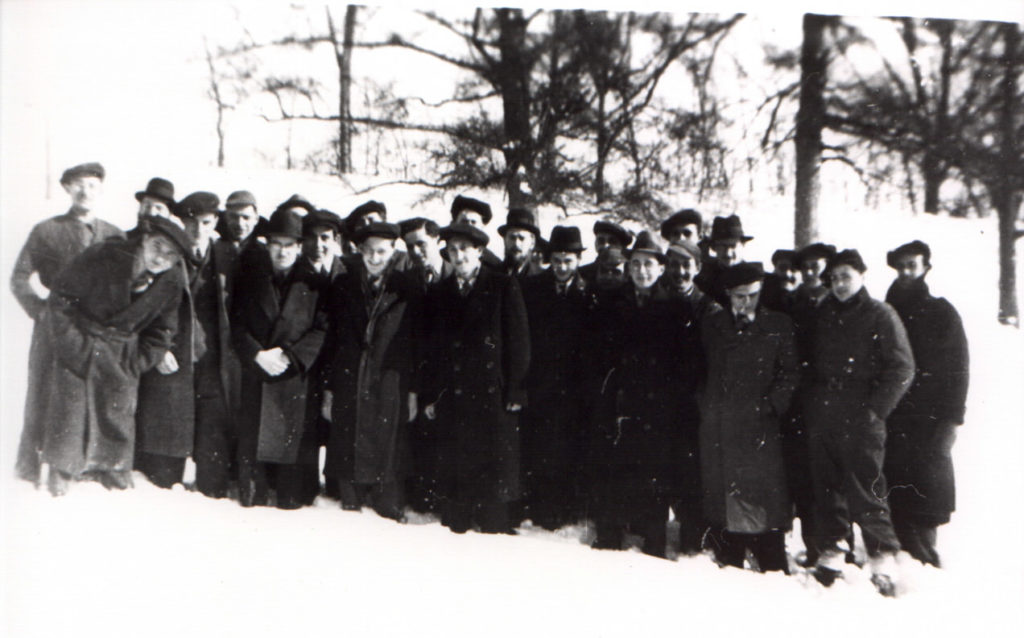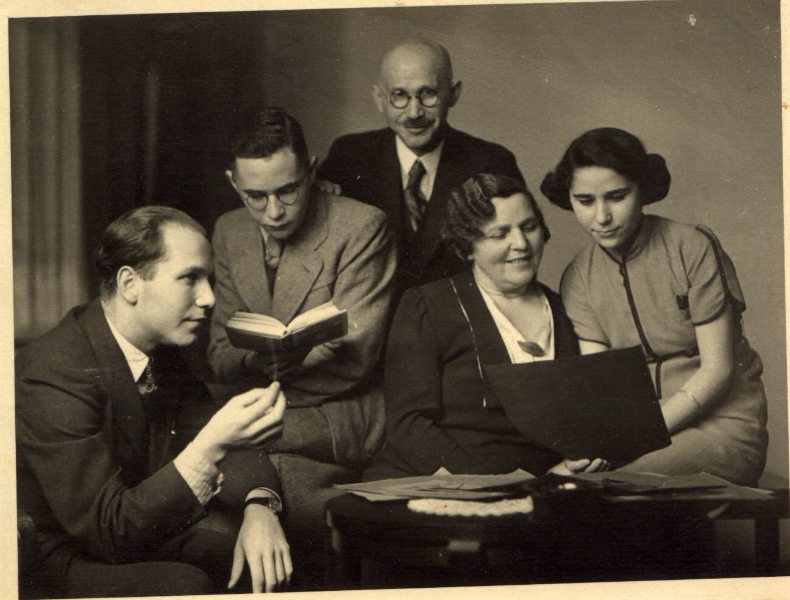Rabbi Erwin Schild, the 98-year-old rabbi emeritus for Adath Israel Congregation in Toronto, is looking for a small black box. It holds his German Order of Merit, which was awarded to him in 2000 for educating Germans about the Holocaust – one year before he received the Order of Canada.
His searching fingers locate the box. He struggles for a moment with the clasp before opening it. Inside the box sits his medal, covered by a piece of yellow cloth. Marked on the cloth in black is a capital “J” inside a Star of David.
Rabbi Schild keeps his Order of Merit from Germany in the same box as a yellow star used to mark Jews during the Holocaust. It reminds him that no matter what, Germany will always be the country that took his dearest family and friends. It reminds him to look to the future and that moving forward is always an option.
And perhaps above all, it reminds him that life is strange and unpredictable. Rabbi Schild is fond of speaking of a hypothetical crazy angel. This angel heralds future events, only to be dismissed as crazy.
For example, Rabbi Schild was born in Cologne in 1920. His late wife, Laura, was born on Jan. 24, 1926, in Montreal.
“If, on that day, an angel from heaven would have come to my parents and said to them, ‘Today in Montreal, Canada, a little baby girl was born. She’ll marry that six-year-old boy … she will be the mother of your grandchildren,’ my parents would have said, ‘That angel is crazy, that angel is meshugge. We are living here in Cologne, Germany … who knows Canada?’ ” explains Rabbi Schild.
Another example: just over 80 years ago, Rabbi Schild was in the Dachau concentration camp. He had been taken there after Kristallnacht.
“Dachau was daily torture, from the moment you were woken up out of the barrack,” says Rabbi Schild. After a meagre breakfast, the prisoners, clad only in threadbare uniforms, were forced to stand still for hours at a time in the freezing cold as the SS watched over them. “If you talked to your neighbours, they kicked you; if you fell, they kicked you again,” says Rabbi Schild.
A fellow prisoner, an elderly gentleman who had fought in the trenches during the First World War, once told Rabbi Schild that a single day in Dachau was more horrible than the totality of his wartime experience.
Now imagine Rabbi Schild standing there in Dachau, freezing and starving, surrounded by SS troops. And imagine an angel descending upon him to tell him that Germany would award him its highest honour 60 years later. “Get out of here, you crazy angel,” Rabbi Schild might have said, “right now, Germany is trying to kill me.”
After a month, Rabbi Schild’s mother freed him from Dachau with the aid of a Dominican consul general. But his release was conditional upon him leaving Germany. So after returning home from Dachau, he spent the next month frantically writing to Jewish organizations in other countries, desperately looking for a way out.
Finally, he heard from a group in Enschede, Netherlands, that was running a hachsharah (a Zionist preparation centre). Rabbi Schild left Cologne on Jan. 26, 1939. At the border, he was told to go back to Germany and enter through Enschede’s other train station.
After spending a month suffering in Dachau and doing everything he could to leave Germany, he did not want to go back.
Eventually, two Jewish men from Enschede intervened and ensured Rabbi Schild’s safe passage. After a few weeks, he moved to England, where he studied for a year in a London yeshivah. From there, he was shipped to an internment camp in Canada, along with around 2,300 other German-Jewish refugees who were suspected of being Nazis.

“It was a psychological torture,” says Rabbi Schild. “Here we are, interned because we could’ve been Nazis, and we hated the Nazis more than Canadians did.” Even so, “looking back, it wasn’t so bad … it wasn’t Dachau.”
Not to mention the fact that it brought him to Canada free of charge. So today, he refuses to remain bitter about his internment; instead, he chooses to be grateful for the blessings life has granted him since.
READ: HOLOCAUST EDUCATION IS MORE IMPORTANT THAN EVER
Rabbi Schild was released after two years in the internment camp. He was accepted to both a yeshivah and the University of Toronto in 1943 and became Adath Israel’s rabbi in 1947. Over the next seven decades, he started a family and led a congregation and watched as Toronto’s Jewish community flourished around him. And through it all, he has come to realize that maybe that angel wouldn’t have been so crazy after all.
